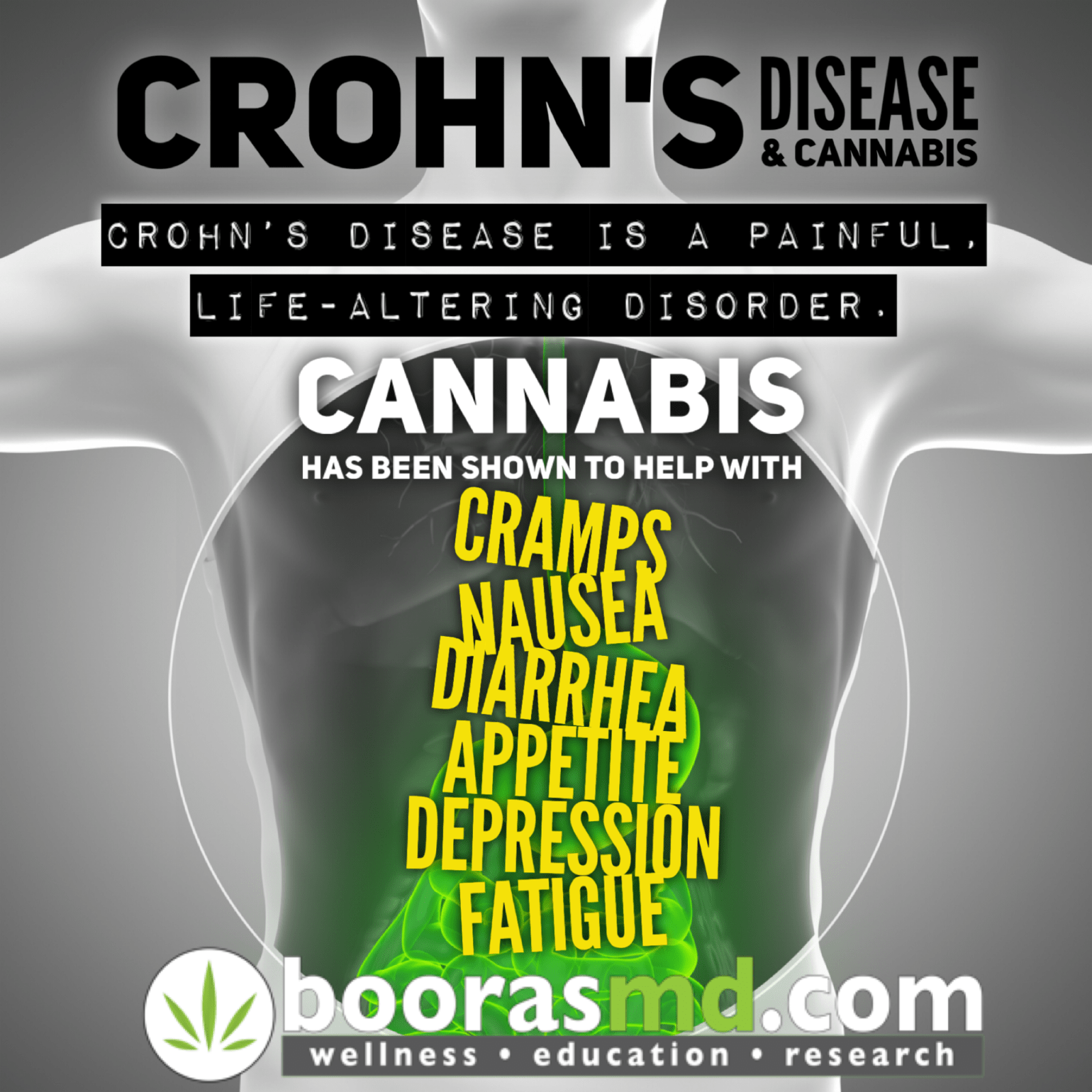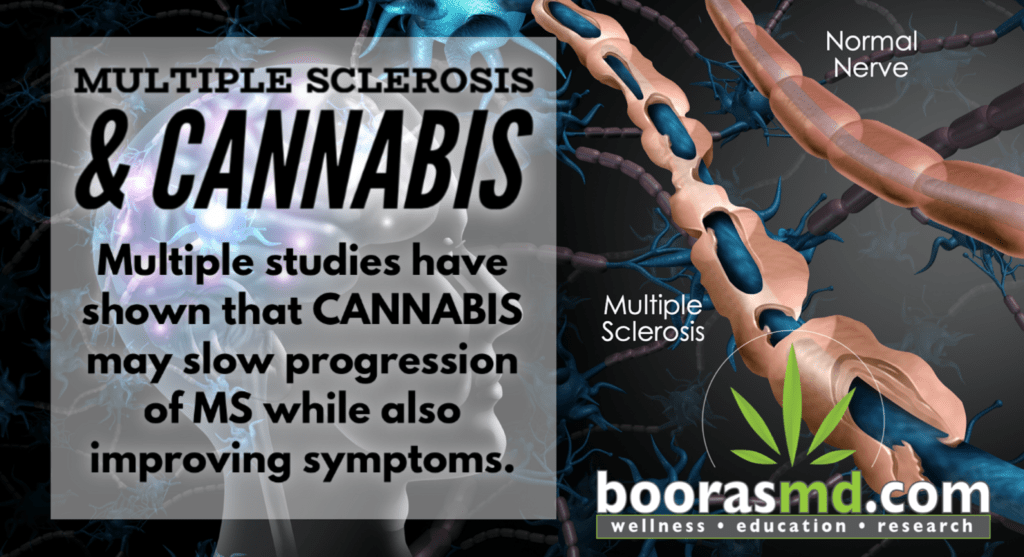Crohn’s Disease and Medical Marijuana (Cannabis)
Crohn’s Disease and Cannabis
Summary: Crohn’s is one of the core certifying conditions qualifying one for treatment with Medical Cannabis. This means that evidence shows clear benefits from using medical cannabis.
Crohn’s disease is an inflammatory process of unknown cause that is commonly associated with a variety of complications that have significant impact on one’s health.
Cannabis is commonly used by patients with inflammatory bowel disease (IBD) to improve their symptoms. Patients claim that cannabis reduces pain, increases appetite, and reduces the need for other medications. About 15-40% of people with Crohn’s are using cannabis in one form or another.
https://link.springer.com/article/10.1007/s10620-019-05763-8
The Endocannabinoid system (ECS) is known to play an important and highly active role in gut homeostasis. The ECS provides a potential therapeutic target for cannabis and cannabinoids. Animal models have shown benefit by using cannabis to reduce gut inflammation.
https://pubmed.ncbi.nlm.nih.gov/30407616/
Cannabis has been used for the treatment of GI disorders such as abdominal pain and diarrhea (commonly seen in Irritable Bowel Syndrome [IBS]). The present review sheds light on the role of cannabis in the gut, liver, and pancreas and also on other GI symptoms, such as nausea and vomiting, anorexia, weight loss, and chronic abdominal pain.
https://pubmed.ncbi.nlm.nih.gov/27792038/
615 cannabis users with Crohn’s were admitted to a hospital because of Crohn’s related complications between 2012-2014. When compared to a matched group of non-cannabis users, the cannabis user group had less serious complications (intra-abdominal abscess, colectomy (surgical excision of part of the colon), blood products transfusion and intravenous nutrition (TPN). These are all well described complications of Crohn’s disease among hospitalized patients.
https://pubmed.ncbi.nlm.nih.gov/30825109/
Mechanism of action: Cannabis contains over 100 phytocannabinoids that activate the Endocannabinoid System via the CB1, CB2, TRPV1, and GPR55 receptors. The ECS has an important homeostatic function including neuroprotection, pain, emotional, memory, hunger, and lipid metabolism.
In the context of Inflammatory Bowel Disease (IBD), like Crohn’s and Ulcerative Colitis, the ECS improves immune system function and reduces inflammation. Treatment with cannabinoids can significantly reduce Crohn’s disease impact in experimental models of IBD by reducing tissue damage.
“In conclusion, considering the mechanism of action of phytocannabinoids and the accumulating evidence of their anti-inflammatory effects in experimental and in vitro studies, it is reasonable to assume that cannabis can be of benefit in the treatment of inflammatory bowel disease. While many of our patients are convinced that cannabis is ameliorating their disease manifestations, clinicians continue to observe rather than to investigate this phenomenon. If cannabis really has therapeutic potential, it must be studied further. Important studies, such as the study by Mbachi et al. that points to a possibility of cannabis improving not only patients’ symptoms but also disease outcome, a possibility that has to be further explored.”
https://link.springer.com/article/10.1007/s10620-019-05763-8
References:
GUT MICROBIOTA & THE ENDOCANNABINOID SYSTEM. **Recommended reading**
Scientific research shows that THC and CBD promote a healthy microbiome.
https://www.projectcbd.org/wellness/gut-microbiota-endocannabinoid-system
The Role of Cannabis in the Management of Inflammatory Bowel Disease: A Review of Clinical, Scientific, and Regulatory Information: Commissioned by the Crohn’s and colitis Foundation.
https://academic.oup.com/ibdjournal/article/25/3/427/5144402
Association between cannabis use and complications related to Crohn’s disease: a retrospective cohort study.
https://doi.org/10.1007/s10620-019-05556-z
“Taken together, a huge amount of preclinical data strongly support the ECS as a therapeutic target in Inflammatory Bowel Disease (IBD)”.
https://www.ncbi.nlm.nih.gov/pmc/articles/PMC5130148/
https://pubmed.ncbi.nlm.nih.gov/22917662/
Cannabinoids exert protective effects in well-established models of intestinal inflammation and colon cancer. Pharmacological elevation of endocannabinoid levels may be a promising strategy to counteract intestinal inflammation and colon cancer.
https://www.ncbi.nlm.nih.gov/pmc/articles/PMC5388177/#CIT0033
Inflammatory bowel disease (IBD) is a lifelong disease of the gastrointestinal tract. Current immunosuppressive therapies available for treatment of IBD offer limited benefits and lose effectiveness, exposing a significant need for the development of novel therapies. In the clinical setting, cannabis has been shown to provide patients with IBD symptomatic relief, although the underlying mechanisms of their anti-inflammatory effects remain unclear.
https://pubmed.ncbi.nlm.nih.gov/28079617/
A short course (8 weeks) of THC-rich cannabis produced significant clinical, steroid-free benefits to 10 of 11 patients with active Crohn’s disease, compared with placebo, without side effects.
https://pubmed.ncbi.nlm.nih.gov/23648372/
Updated by Dr. Charlie Booras, MD on March 1, 2021




